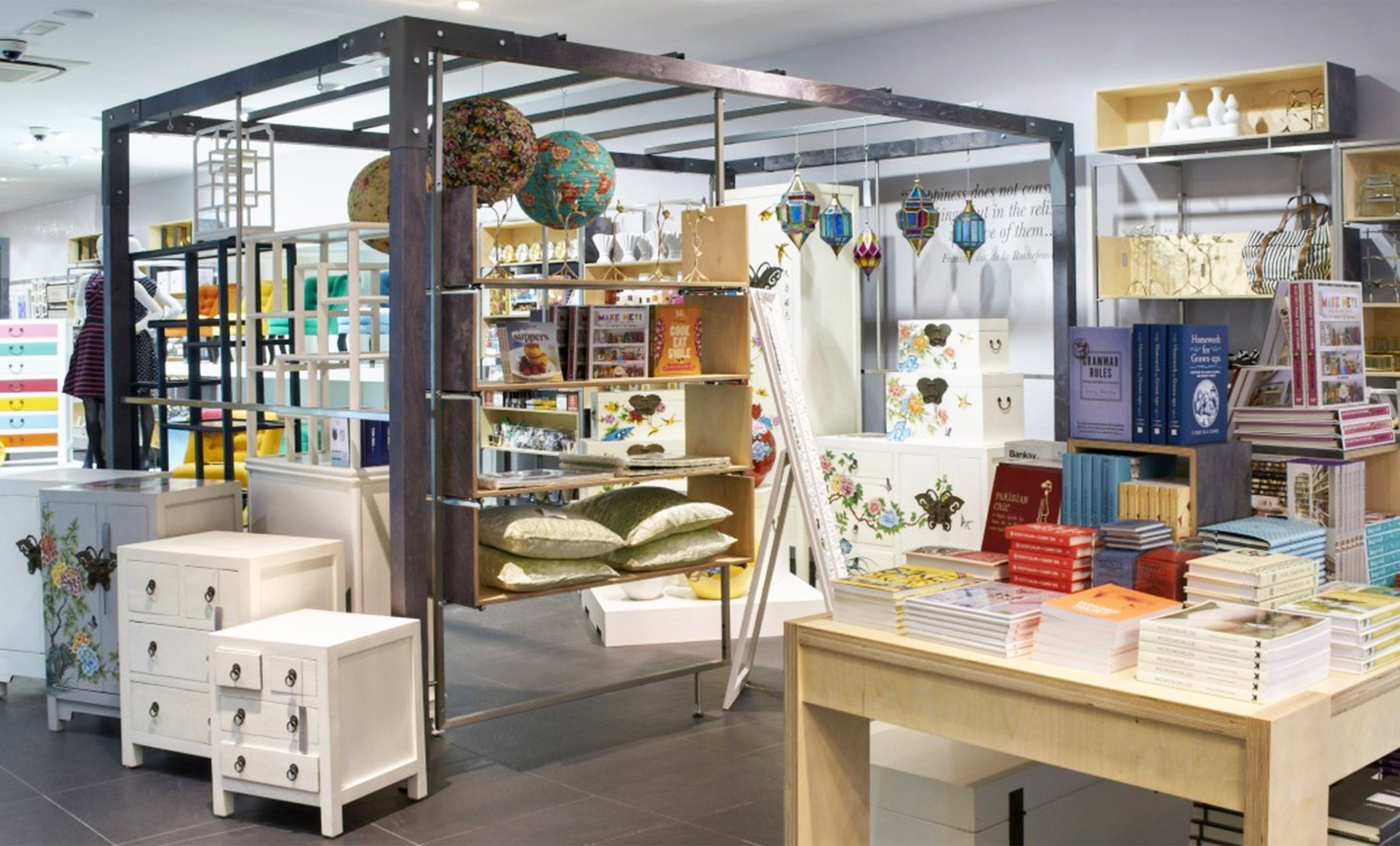Who is the owner of Oliver Bonas and how has he captured middle-class hearts?
It's the first high-street store to pay its staff the living wage, and it saw out the recession in style, as Kate Wills reports

Are you the kind of person who would part with £14 for a yuzu and green tea-scented candle in the shape of an owl? If so, you're probably well acquainted with Oliver Bonas. If not, picture one of those kitsch gift shops you tend to find in upmarket seaside towns – an eclectic mix of homeware, furniture, cards, clothes and the downright baffling (Keep Calm Nipple Balm, anyone?)
But underestimate the power of the quirky knick-knack at your peril – Oliver Bonas has almost 80 stores nationwide and employs more than 1000 workers. In 2015, it became the first high-street chain store to offer its workers the living wage – £9.50 an hour, or £10.85 in London.
So who is this fair-paying Oliver Bonas? And how did he manage to flog us flamingo-print napkins for £3 a pop? Well, firstly there is no Mr Bonas. Only Oliver Tress, who opened his first store on the Fulham Road in 1993 with handbags and jewellery he'd brought over from Hong Kong where his parents lived. "I'd been bringing presents back for friends and they were really popular so I thought, 'I wonder if I can make a go of this?' And to my amazement it just worked." Bonas was the surname of his then girlfriend Anna (cousin of Prince Harry's ex-girlfriend Cressida Bonas) and "she very kindly hasn't demanded that I changed it".
In the early days, Tress went around cherry-picking his products from trade shows "like a magpie", but now he and his team design pretty much everything in-house. "There are a lot of companies selling other people's products, but I want Oliver Bonas to be a British design house with our own handwriting," he says. Perhaps surprisingly, clothing is the company's biggest-seller. Its own label produces bird-print tunic dresses and stripey T-shirts beloved by a certain type of yummy mummy. In fact, OB has become such a byword for middle-class consumerism that the opening of a store on your high street might one day produce a "Waitrose effect" on house prices in the area.
The Oliver Bonas store in Richmond, south-west London, is calm and fragrant (possibly yuzu and green tea-scented, I can't be sure). Well-dressed women in their thirties and forties browse the parrot-print umbrellas (£18), artfully distressed photo frames (£16) and one "Velvet Love Tub" – a blue chaise longue (£625). The stock seems random and perhaps that's the point. One shopper describes the Oliver Bonas experience as "like discovering a really good find in a flea market or a vintage shop, but nicer and without the hassle".
Rylee Dent, 20, has worked here since she was 17 and until recently was commuting to work from Brighton because she loved this particular store so much. "I've got my regular customers who I've built up a rapport with – a couple of mums who I've seen through their pregnancy who have since come in with their babies."
Last year, 5,839 high-street shops in the UK shut their doors for the last time, but Oliver Bonas continues to expand (stores in York and Birmingham are opening in the next few months). How has it bucked the trend? "We've always just done our own thing," explains Tress. "We don't put limitations on what we sell, it's just whatever we're getting excited about at the time. We only put things that we care about in the shop and I think that comes across."
Tress describes the move to pay the living wage as "the most exciting thing we've done as a business" and sounds as warm and fuzzy as one of his cashmere blankets when he talks about the decision. "It's been quite emotional. We've had a fantastic reaction to it, from people who don't know Oliver Bonas who have got in touch to say that they think it's great that we've done it when everyone's saying how hard it is for retailers to afford to do it, to customers saying 'I love the store anyway but this just makes it more pleasurable to shop here.'
"Doing this has cost the business a lot of money and we're not expecting to make it back. But I want to come to work every day to a place where everyone is happy and motivated. The living wage is just a starting point."
For Rylee Dent it means her full-time wage has gone from £16,000 to £19,000 a year. So what's she going to spend the extra cash on? "Probably more stuff from Oliver Bonas."
Subscribe to Independent Premium to bookmark this article
Want to bookmark your favourite articles and stories to read or reference later? Start your Independent Premium subscription today.

Join our commenting forum
Join thought-provoking conversations, follow other Independent readers and see their replies